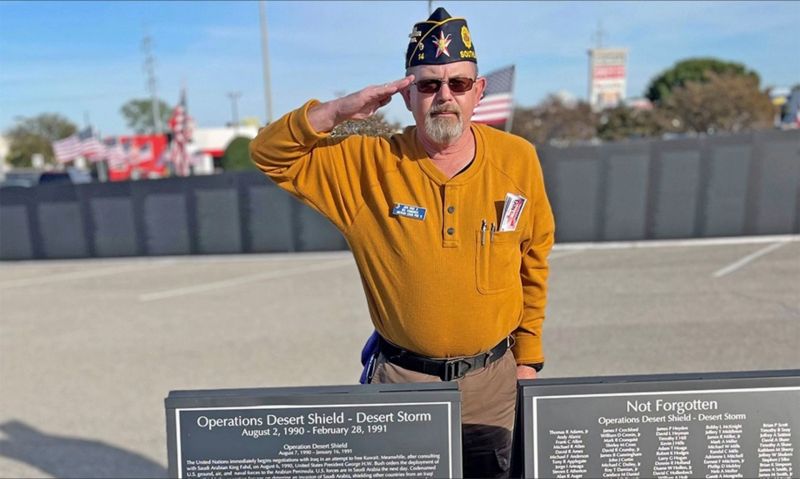
John Kirby IV of Texas shares with other veterans about the VA’s PTSD Coach app and Legion’s ‘Be the One’ suicide prevention message.
For nearly 30 years John Kirby IV suffered from post-traumatic stress disorder (PTSD) and suicidal thoughts. He couldn’t open his Army duffel bag from his time in combat during Desert Storm, as he was scared what he would find – bloody gear from him or a fellow soldier. It was until he experienced another trauma, divorce, that he faced his PTSD and sought help. Through the Dallas VA Medical Center he took a cognitive processing therapy class.
“Because of that class I was able to open up my military duffel bag,” said Kirby, noting he found boots that still fit and hunting gear in the bag. “What really saved me was writing down my trauma. I had written out my story, my trauma, what happened. I wasn’t a believer in seeing a therapist. I was like, ‘I can handle this.’ But once I went through the therapy and wrote down my trauma, I was able to realize wow, this is great. What a good feeling.”
Now, Kirby is using his experience with PTSD to help other veterans with mental health challenges. “PTSD is my number one focus,” he said.
As a Paid Up for Life member of The American Legion and soon to be incoming commander of Post 14 in Southlake, Texas, Kirby uses the VA’s PTSD Coach app to cope with his PTSD symptoms and help others do the same. The app provides relaxation exercise, soothing sounds, and the ability to upload pictures, track progress and more.
“PTSD Coach helps me reflect on my trauma by journaling and having the ability to release my story and work through the healing process for myself. It’s helped me a lot just by reading some of the tips and completing daily tasks built into the app. The ability to add pictures and songs has been really helpful for me,” he told VA News.
For the younger generation, Kirby said the app is “their language … their language is the phone, their language is online. And they may not know about it or if they do know about it they may not see the value in it. (The app) is a good way from getting away from the bad thoughts.” To hear about Kirby’s experience with the app, he encourages veterans to reach out to him by email, opcent06@gmail.com.
Kirby believes veterans hold back from seeking help because “they don’t think the situation is going to change, they don’t think there’s a way out, they don’t think there’s help. And then a second trauma hits and the weight gets heavier, and your mind starts thinking and dreaming crazy thoughts about the first trauma. Whatever it is you don’t see a way out.”
Through the PTDS Coach app and The American Legion’s “Be the One” suicide prevention initiative, which aims to destigmatize asking for mental help and encouraging everyone to “Be the One” to save the life of a veteran, Kirby is showing veterans how to get help.
“I have a 2nd Armored Division Forward hat, and the only pin on it is ‘Be the One.’ The ‘Be the One’ campaign is spot on; it couldn’t be better for me. PTSD and suicide prevention is my passion,” said Kirby, who would like to see a certified PTSD facilitator in every American Legion district. “How do we deliver the ‘Be the One’ message? National has the campaign, now we at the post level have to drive it. I think we drive it through personal experience, talking with veterans, recognizing it (suicidal thoughts), getting someone to admit it … they have to be willing to get help. A lot of veterans don’t know there is help out there.
“Can you identify that you have a problem? Can I help you with the resources that are available because you may not know? This is how I give back … telling them, showing them, letting them know. If their life gets better and I had any single element in it, that gives me gratitude. Because I will do anything for The American Legion, the veteran, anytime. I don’t have all the answers but what I do have is that I want to give back.”
- Be the One

